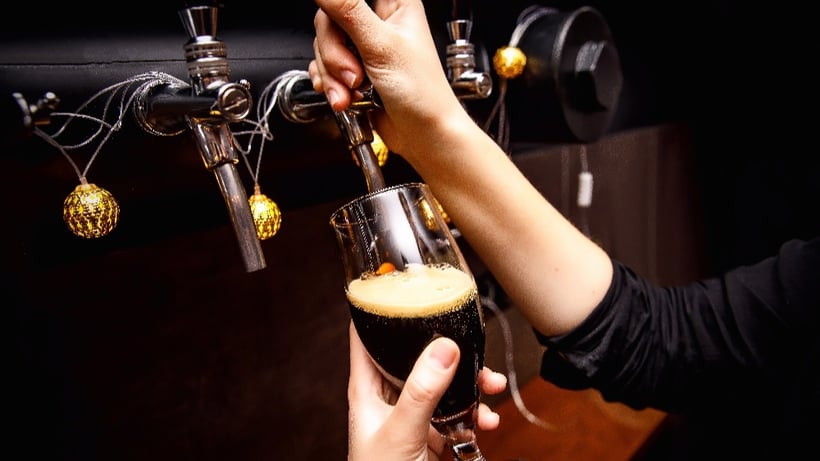
Alcohol service is more than just pouring drinks: it entails a deep understanding of various laws, a commitment to responsible service and keen observation skills to assess customer behaviour appropriately.
In Australia, this is a highly regulated sector where Responsible Service of Alcohol (RSA) training is mandatory. This blog will delve into the roles, responsibilities and legal prerequisites of becoming an alcohol server.
What is an Alcohol Server?
An alcohol server is an individual who is responsible for taking orders for alcoholic beverages and serving them to customers in an establishment licensed to serve alcohol.
The roles of an alcohol server can vary depending on the type of establishment, be it a bar, restaurant or club. Still, the core responsibilities remain reasonably consistent across the board.
Key Responsibilities of an Alcohol Server
Basic Knowledge of Alcohol Service
Alcohol servers must possess a fundamental understanding of different types of alcoholic beverages, from beers and wines to spirits and cocktails. This basic knowledge includes understanding the difference between various kinds of alcohol, their alcohol content, and ideal serving temperatures, among other factors.
Skill in Specific Tasks
Alcohol servers must be adept in the tasks they are responsible for, which often go beyond simply pouring drinks. These may include skills like:
- Accurate measurement of alcohol quantities
- Mixing cocktails
- Recognising signs of intoxication
- Checking IDs to verify the legal age of patrons
- Understanding Relevant Laws
- Legal requirements and regulations are an integral part of alcohol service.
Alcohol servers must:
- Be aware of state and federal laws related to alcohol service
- Understand licensing regulations
- Know the protocols for refusing service to intoxicated or underage individuals
- Be familiar with the establishment's policies on alcohol service
Mandatory Training: Responsible Service of Alcohol (RSA)
In Australia, anyone involved in the service of alcohol is required to undergo RSA training. This training covers:
- Social and health impacts of alcohol consumption
- Laws and regulations about alcohol service in various states and territories
- Techniques for responsible service, including how to refuse service to intoxicated or underage customers
RSA courses often include quizzes, case studies, and even virtual assessments to ensure you fully grasp the essentials of responsible alcohol service.
Why is RSA Training Crucial?
The RSA certification is not merely a regulatory hoop to jump through. It's designed to equip you with the skills and knowledge to provide patrons with a safe and enjoyable environment. This includes understanding how alcohol affects the human body, spotting the early signs of intoxication, and dealing with high-risk customer groups effectively. Also, having this training helps avoid liability and legal trouble for you and your employer.
Serving alcohol is about more than pouring drinks – it's a dynamic role combining legal know-how, skilful service, and specialised training to create a genuinely responsible server.
Frequently Asked Questions
How can alcohol servers stay updated on changes to local and federal laws affecting their responsibilities?
Alcohol servers can stay updated on changes to local and federal laws affecting their responsibilities by regularly participating in refresher training courses, subscribing to industry newsletters and being members of professional organisations related to hospitality and alcohol service.
Additionally, employers often provide updates and training sessions when there are legal changes to ensure compliance. Checking government websites that list regulations and legal requirements for alcohol service is also a reliable source of updated information.
What additional skills or certifications, beyond the RSA, can enhance an alcohol server’s career prospects?
Alcohol servers can enhance their career prospects with additional skills or certifications such as wine and spirits knowledge, cocktail mixing and bartending skills, customer service excellence training and conflict resolution certifications.
Acquiring management skills and certifications in hospitality management can also open up higher-level opportunities in the industry. These additional qualifications can make servers more versatile and valuable employees, able to handle a wider range of customer interactions and service scenarios.
What are some common legal issues faced by alcohol servers, and how can they be avoided?
Common legal issues faced by alcohol servers include serving alcohol to underage or intoxicated individuals, which can lead to fines and legal action. To avoid these issues, servers should rigorously adhere to responsible service of alcohol guidelines, consistently check identification, monitor and manage customer alcohol intake and receive regular training updates.
Establishing clear policies and maintaining good communication with management about legal obligations and customer interactions also helps in preventing legal problems.




